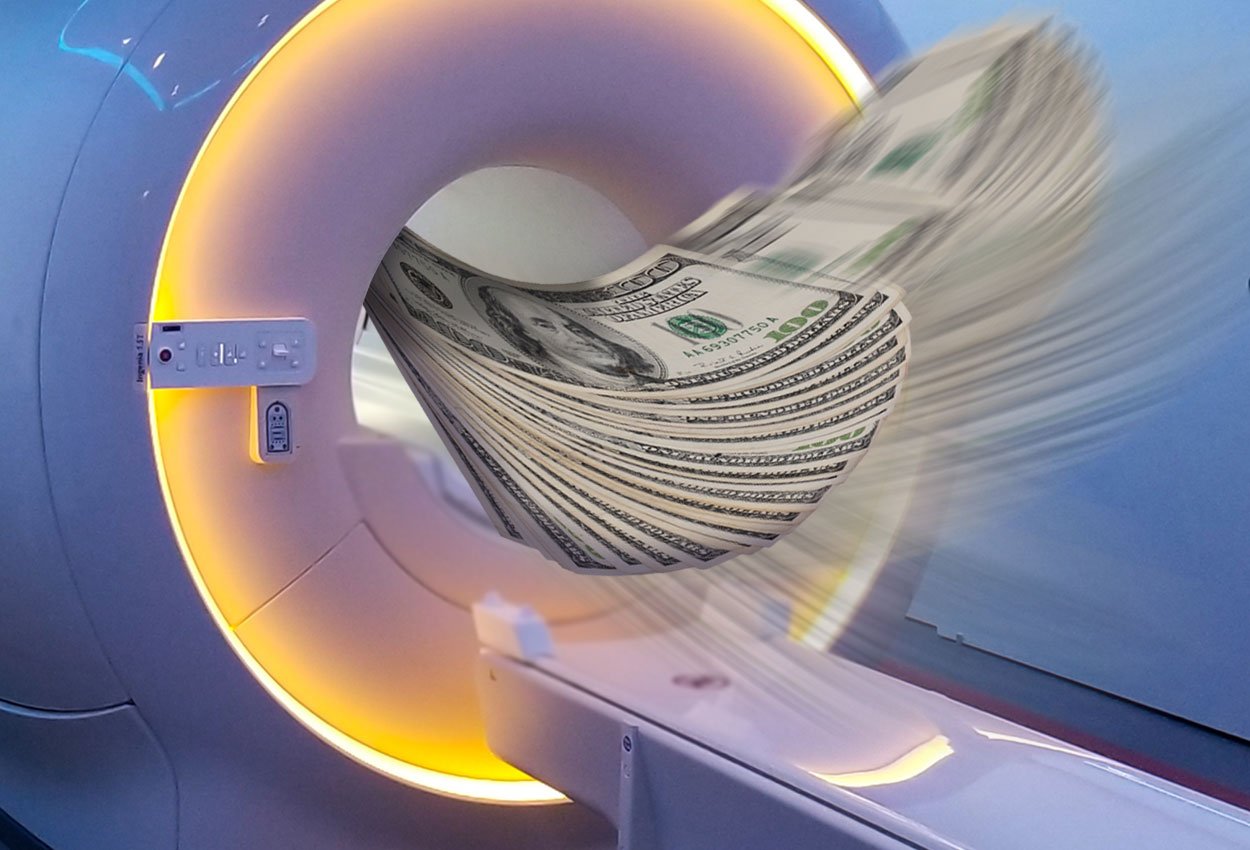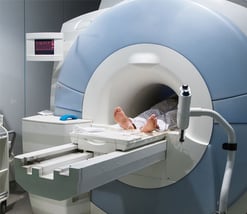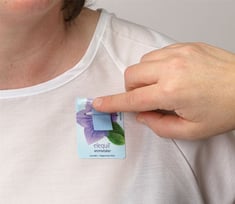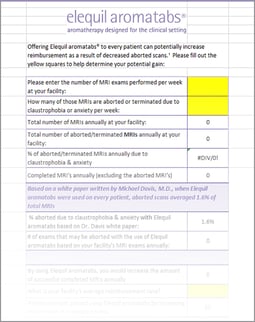
MRI’s are an important diagnostic tool. They can differentiate between fat, water, muscle, and other soft tissue to help detect abnormalities of the brain, heart, breast, liver, and joints to name a few.
So, when patients are prescribed an MRI exam from their doctor, it is for a good reason. Yet there are times when a patient cannot finish this important exam because of feeling claustrophobic or anxious when in the MRI bore (typically 23.6” wide). According to healthresearchfunding.org, 5% of the general public suffer from claustrophobia and 13% of people reported having a panic attack during their MRI.
Patient anxiousness within the bore problematic for patient and MRI staff
While some patients can be coached by the MRI Technologist to help them complete the exam, others need to terminate the MRI resulting in an uncomplete study. When this happens, it is problematic for the patient and the MRI facility.
Some patients know in advance that they are claustrophobic. To help them get through the MRI, they may ask their doctor for a sedative medication to take before the exam. If that is the case, they will need someone to drive them home after the MRI appointment.
Other patients may not know they are claustrophobic until they are in the MRI bore. If this happens and they cannot complete their MRI, they will need to reschedule. Obviously, this can be frustrating for the patient as they may have taken time off from work for this appointment, hired a sitter for their kids, or just faced with the inconvenience of wasting their time because they couldn’t complete their exam as scheduled.
They will now have to consider using a sedative which requires contacting their physician, picking up the sedative, waiting for their next MRI - with the added anxiousness of hoping they will make it through this time. Their diagnosis is delayed, or even worse, the patient decides to not go back at all for the MRI exam.
Delayed diagnosis, excess coaching time, lost time slot, decreased revenue
 The primary goal of an MRI is to provide a comprehensive study for the physician to accurately diagnose the patient.
The primary goal of an MRI is to provide a comprehensive study for the physician to accurately diagnose the patient.
Although the patient is top of mind, running an MRI department is a business, and lost revenue due to aborted scans is a reoccurring concern.
MRI centers are constantly evaluating ways to decrease aborted scans simply and effectively.
When a patient needs to be coached through an MRI, the exam time is increased and can cause an interruption in patient scheduling. This may create a backlog in the waiting room and have a ripple effect for the entire day.
When a patient needs to terminate their MRI, that time slot dedicated to that patient is considered “lost”. When that occurs, the facility does not get paid for the exam, but there are still costs associated with that “lost” time slot – the technologist’s salary, the cost to run the equipment, and other departmental overhead.
Steps you can take to reduce aborted scans and resultant lost revenue
There is a statistically significant difference in anxiousness and patient satisfaction in those patients that received information before the MRI on what to expect during the exam. Providing upfront information is an easy action that can be put into place.
Another proven method is offering clinical aromatherapy.
The paper "Aromatherapy in MRI: Evaluating the use of Elequil Aromatabs® to Reduce Aborted Scans in Patients with Anxiety and Claustrophobia," compared aborted scans and coaching times between a control group and an aromatherapy group who were provided an Elequil aromatab prior to their scan.
Elequil aromatabs®, is aromatherapy designed for the clinical setting.
Created in 2010 specifically to help patients get through their MRI exam by helping to reduce their anxiousness, it has a unique delivery system which is metal-free and adheres to the patient’s clothing/gown for personalized aromatherapy throughout the exam.
This study determined that in the control group, 2.89% of patients had incomplete MRI scans and 2.72% patients needed additional coaching. The patients who were offered Elequil aromatabs® showed a decrease to 1.6% of incomplete scans. Coaching time also decreased to 1.6%.
The paper's author, Michael A. Davis, MD, ScD, MBA, includes a table that demonstrates how Elequil aromatabs® can pay for itself and increase reimbursement dollars by decreasing aborted scans. The example provided in the white paper demonstrated that the facility could gain an additional $25,311 in revenue.
While the majority of Beekley Medical's MRI customers use either Elequil Lavender or Lavender-Sandalwood scents to help calm patients and reduce anxiousness; the Orange-Peppermint or Lavender-Peppermint options can help reduce the queasiness that may occur with gadolinium contract injections.
Experience Elequil aromatabs® for yourself
Are you curious to see how much in lost revenue you might be able to recoup by coaching time and reducing aborted scans? Use this MRI Lost Revenue Calculator Tool to help you determine how many dollars your center can gain in revenues by offering Elequil aromatabs® to every patient.
Contact your Beekley Medical Business Development Manager at 1.800.233.5539 to request a trial evaluation of Elequil at your imaging center or email info@beekley.com.
*Individuals looking to purchase Elequil aromatabs® for personal use can do so at the consumer shop on elequil.com

Melissa Vibberts
Director of Brand Management

